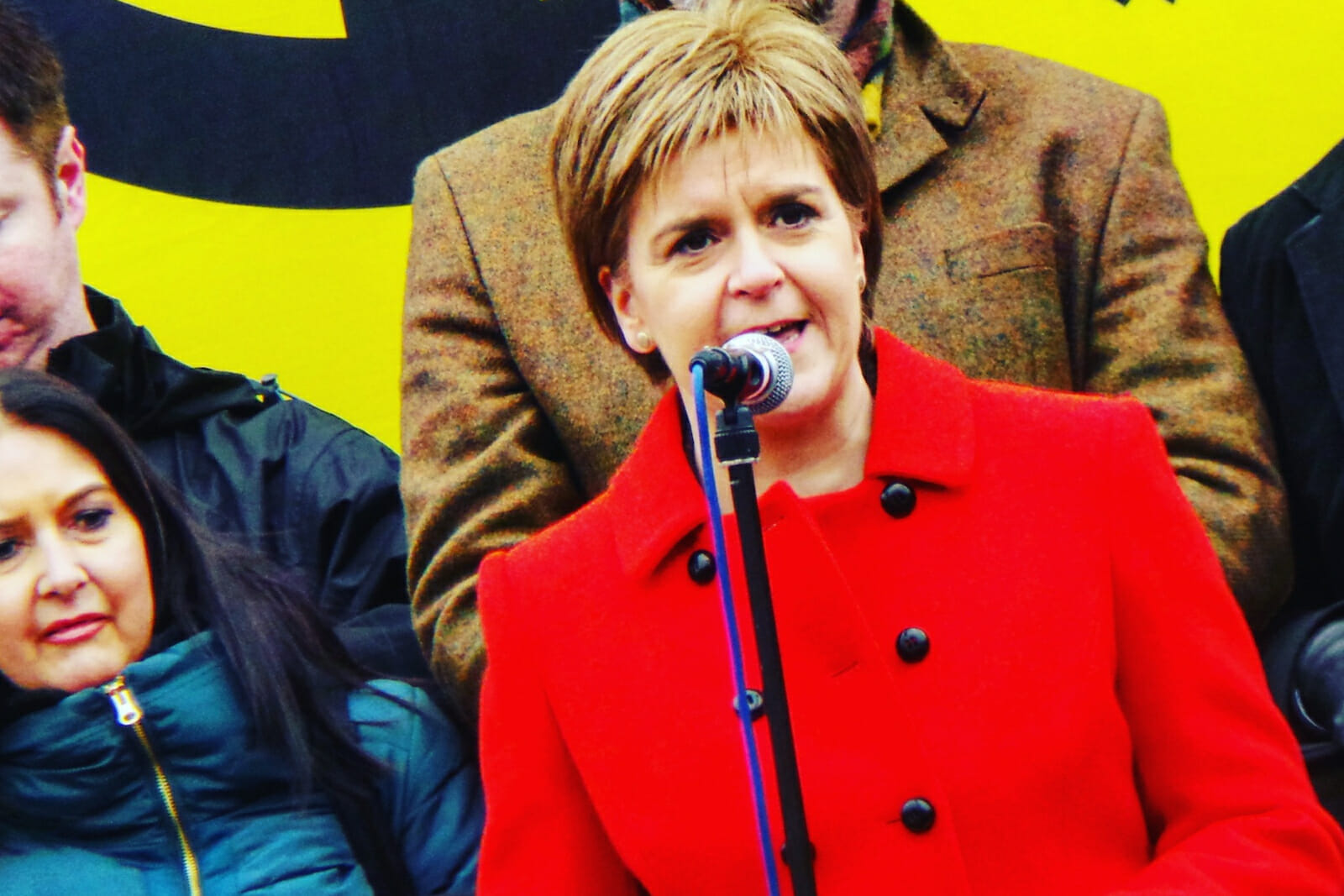
Scottish Independence Means Independence from the EU
Nationalists in the Scottish National Party have been using the same motto since the 2014 referendum: “A vote for independence is a vote for the European Union.” But it has become more than a motto—it has become a cultic mantra, becoming the answer to almost any skeptic’s question posed on anything from the economy, to trade, or what currency to use. “We’ll be in the EU, it’ll be fine then.” But what if it won’t be fine?
This overreliance on the EU is deeply concerning when membership is not guaranteed. The SNP needs alternative plans for trade and the economy in place and should consider models outside the EU. Fighting for independence should mean becoming a truly independent nation—not merely switching its yoke from the United Kingdom to the European Union.
Nationalist rhetoric on trade assumes that Scotland will automatically enter the EU or be an expedited case when applying. This ignores the costs of entering the EU trade bloc to begin with. The reality is that Scotland is dependent on the UK: Over 60% of its exports go to the rest of the UK, while only 19% goes to the EU. This disparity can’t be fixed by switching export focus to the EU without major changes in the economy and pains for consumers. Added to this are the tariff spats continuing between the EU and the United States. One recent spat, for instance, was over whiskey. American whiskey producers saw export declines of 37% to the EU and 57% to the UK. The UK is addressing the issue, but no such agreement is in place with the EU. Scotland walking into the EU block would be devastating on trade between the U.S. and Scotland and risk putting tariffs back on a key sector of Scotland’s economy.
Trade is also threatened by expanding the EU border into Great Britain, alleging that they’ll put a hard border where one hasn’t existed in over 300 years. This is one of the biggest issues the SNP has rarely addressed and Unionists have justifiably harped on. Dean Lockhart, a Scottish Tory, noted that “The SNP’s plans for separation would result in a hard border at Berwick, impacting trade with our biggest economic partner and risking more than 500,000 Scottish jobs that depend on the UK internal market.”

Besides, the European Union isn’t what it’s cracked up to be. While its initial formation did wonders in breaking down barriers to trade and movement of people, the EU has become more bureaucratic with age through overburdensome regulation. This is evidenced in the GDPR (General Data Protection Regulation). It was predicted to cost the UK £13.9 billion in sales in the marketing industry alone, with more negative effects on tech entrepreneurship and productivity growth. Scotland should not take these regulatory burdens as its own, and it doesn’t need to. A study by the office of the British PM in 2014 noted that regulatory reforms from the EU in the digital space could add 4% to GDP and reforms in trade could add 1.8%. Scotland can learn from this and make good regulatory decisions from the start by ensuring entrepreneurs and businesses have a friendly space to work. If the EU won’t reform, Scotland can be there to catch the entrepreneurial talent of Europe. Scotland should look to the world for role models, and it already has one in its Celtic sister: Ireland.
An independent Scotland faces a similar situation to 1990’s Ireland, one of the poorest economies in Europe at the time. Ireland took drastic action by cutting regulation and opening up to free trade. Even with criticism, Ireland’s results speak for themselves: massive economic growth, competitive tax rates, and a GDP per capita almost twice higher than Scotland with a smaller population to boot. Ireland deservedly earned the title “Celtic Tiger.” It’s time for Scotland to take the mantle.
It will require a colossal effort by Scotland to achieve this idea of a prosperous country as they bear the burden of proof to show the world it can be economically sound. The SNP does not have the strongest economic arguments in my opinion, but not all questions can be answered by economics. In the debate on independence, ideas and emotion usually win the day.
What I aim to present and encourage is an economic reality check to the debate and not an attack on the emotional arguments of Scottish nationalism because I share their attachment to nationalism. Unfortunately, that may not be enough when the SNP’s underlying message seems no longer a Scottish nationalism, but European nationalism, defeating the purpose of the party in the first place. Hyperfocus on the EU is unwise in a situation that demands flexibility in responding to the economic situations that will crop up after independence. Independence should mean true independence. Saorsa gu bràth!

